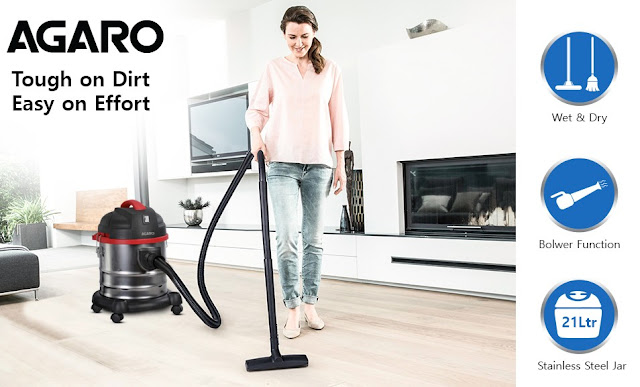Best Home Automation Devices (Topic 5)- What Are The Different Types of Protocols In Home Automation And The Commonly Used Devices?
What are the Different Types of Protocols in Home Automation And The Commonly Used Devices?
Letus see once again,
Wi-Fi:
Most people know Wi-Fi, but they may not realize that it has a place in home automation. Lots of smart devices on the market connect to smartphones or hubs via Wi-Fi, and that makes sense—it’s a widely available network that people know how to use.
However, on the downside, many devices already operate via Wi-Fi. Adding another, potentially bandwidth-intensive one could cause traffic congestion and, in some cases, signal interference.
Z-Wave:
Many smart home products use the Z-Wave protocol, which usually transmits on the 908.42 MHz frequency. The protocol employs a mesh network—a chain that turns individual smart devices into nodes. These nodes pass data packets from device to device until the packets reach their final destination. Z-Wave devices are known for interoperability, although it occurs solely within the Z-Wave home automation network.
Zigbee:
Likee Z-Wave, Zigbee relies on a mesh network. However, it generally runs on the 2.4 GHz frequency. Many smart home devices use the frequency because of its long range. Some developers enjoy working with the Zigbee protocol because of its security and low power usage. Consumers, in turn, benefit from that built-in security in their Zigbee devices.
The other protocols apart from WIFI,,Z wave and Zigbee are follows.
Bluetooth Low Energy (BLE):
Bluetooth Low Energy is another well-known protocol. In the past, the technology relied on short-range radio frequencies to communicate between two devices that were near each other.
Now, though, the technology is capable of mesh networking, helping some of the protocol’s old range issues. Its other primary benefit is security—it relies on government-grade encryption.
X10:
Some protocols have fallen out of favor or see little use today. X10 is one of these.
It has been around for years and relies on a home’s powerline system to transmit signals. This standard likely won’t work well with smart home devices needing fast connections.
Insteon:
Insteon tries to bridge the gap between wireless and powerline-based protocols. It’s a versatile protocol, perhaps explaining why its devices and hubs are relatively easy to install. Like Zigbee and Z-Wave, the protocol employs a mesh network.
The difference is that Insteon uses two bands to increase reliability and performance—and that’s in addition to its powerline networking, too.
However, Insteon works in fewer smart home verticals than some of the other protocols. The protocol tends to emphasize lighting, security, and climate control.
Thread:
Thread is so new that many consumers are unaware of it. This protocol has received attention from the likes of Google and Samsung, and it aims to create a secure home network that can handle over 250 smart home devices.
That kind of potential capability could cause Thread to become a more common protocol over the next few years.
Universal Powerline Bus (UPB):
Universall Powerline Bus is relatively uncommon, too, though it’s more current and more reliable than X10. This system effectively turns your home wiring into a network for transmitting signals.
While UPB devices operate better than the X10 ones, other protocols and products far surpass UPB in terms of speed, security, and interoperability
But in usage ,because of their availability,simplicity and adoptability ,
Wifi zwave and Zigbee are most commonly used.
Some Commonly Used Devices In Home Automation In India:
1)The Hub or Gate way :
This is similar to our brain ,which controlls the devices connected in the network.
It takes the order from mobile or tab and process the request and send it to perform the application to a particular device.then respond it to the user accordingly .
2)Double Relay or Single Relay :
This is device to controll the switches already available in the home and it connects the switch as well as the electrical product may be a fan or a light.It is built in side the switch module box.
3)Dimmer:
Itt controlls the lux level of the lighting load connected in the network
4)Curtain switch or Shutter :
It controls the curtain or blind or and shutter to move vertical or horizontal or up and down or left and right .
5)Sensors-
Window or Door ,Motion ,Smoke and Flood .
This sensors are used depend on the application required in home .
6)Led Controller:
It controlls the lux level as well as colour
7)Controlling Devices :
It may be a tab,mobile phone ,a remote or a voice based control like Amazon Eco,Alexa or Google Home devices or a kind of switch or a button type option to do control the devices .
Note:
Please Note that ,the Devices given above are for illustration only.Similarly , refered you to buy the devices from online is just an idea.
But,you have to choose ,Either you are going for Wifi or Z wave / Zigbee Technology devices ,accordingly you can plan.
We also provide the solution.please subscribe and enjoy the day.
Regards,
Admin



















Comments
Nice day
Admin